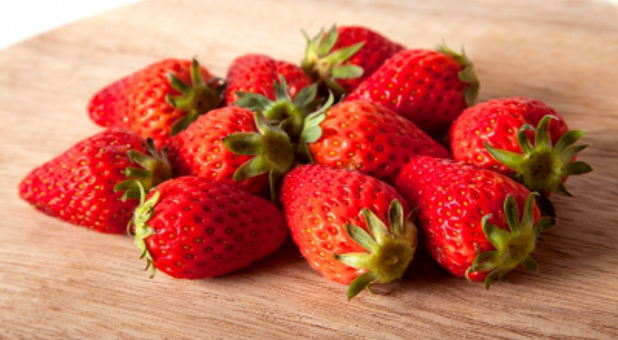The World Health Organization last month labeled one of the most widely used weed killers—the active ingredient in Monsanto’s popular herbicide Roundup—a “probable human carcinogen,” raising new concerns about agricultural chemicals.
The decision, by the WHO’s International Agency for Research on Cancer, deems glyphosate—a staple of commercial farming worldwide—an all-but-certain cause of cancer. That designation has prompted the Environmental Protection Agency to initiate a new evaluation of its safety, even though Monsanto argues the chemical is safe.
In the meantime, health and nutrition experts say consumers to take active steps to reduce their exposure to glyphosate as a precaution.
“Exposure can come through water, air and a variety of foods including produce and animal products,” notes Marisa Moore, a registered dietitian nutritionist and spokesperson for the American Academy of Nutrition & Dietetics. “Unless you are growing your own produce from seed in soil that has not been treated with a specific chemical, you cannot guarantee the amount of residue you might encounter.”
Consumers can significantly limit their potential risks from glyphosate and other agricultural chemicals by taking a few simple steps:
1. Wash produce. Thoroughly washing fruits and vegetables—including bagged lettuce—can remove surface chemical residues from such foods, as well as surface bacteria and other causes of foodborne illnesses. But keep in mind that agricultural chemicals can penetrate produce, so washing them will not entirely eliminate chemical residues.
“According to the Environmental Protection Agency, washing will not remove all pesticide residue from the surface of fruits and vegetables,” Moore tells Newsmax Health. “However, washing and scrubbing fruits and vegetables under running water may get rid of small amounts of pesticides or agricultural chemicals from the surface.”
2. Peel fruits, veggies. Removing the skin or surface leaves of lettuce, cabbage, and other conventionally grown fruits and vegetables won’t take away all chemical residues from non-organic foods, but can cut levels significantly.
“You can reduce but not eliminate your exposure to pesticides, herbicides and other chemicals by peeling fruits and vegetables or removing the outer leaves of certain vegetables,” Moore notes.
3. Buy organic. The most obvious and effective way to reduce your risk is to buy fruits and vegetables grown organically. To be labeled “organic,” a product has to be made with organic ingredients and certified by the U.S. Department of Agriculture. But keep in mind, it still doesn’t mean the product is completely organic—it can contain up to 5 percent nonorganic ingredients.
“To reduce exposure you can buy your produce from organic farmers who don’t use the pesticide you’re trying to avoid,” Moore tells Newsmax Health. “But remember there are a number of different pesticides and herbicides used in farming and regular testing shows that eaten in typical amounts the residues don’t carry a food safety concern.”
4. Choose foods wisely. If you don’t want to buy only organic produce, you can still greatly reduce your risks by purchasing only certain foods that are grown without chemicals—those that top federal government lists of those with the most pesticide residues.
“The U.S. Department of Agriculture tests produce for pesticide residues every year,” Moore notes. “Certain fruits and vegetables like apples and sweet bell peppers often top the list but it changes year to year. Some of these foods that top the list may be worth buying organic.”
According to the Environmental Working Group’s annual “Dirty Dozen” list of produce with the most pesticide residues, issued last month, apples have the highest levels, followed by peaches, nectarines, strawberries, grapes, celery, spinach, sweet bell peppers, cucumbers, cherry tomatoes, imported snap peas and potatoes.
The EWG also found that two types of produce, green leafy greens and hot peppers, were so contaminated with pesticides that they deserved a category of their own, the “Dirty Dozen Plus.”
The advocacy group’s “Clean Fifteen” list of fruits and vegetables with the least amount of pesticides includes (with only 1 percent showing pesticide residue), sweet corn, pineapples, cabbage, sweet peas (frozen), onions, asparagus, mangoes, papayas, kiwi, eggplant, grapefruit, cantaloupe and cauliflower.
Almost two-thirds of the produce samples tested by the USDA contained pesticide residues. The EWG estimates that people can lower their pesticide exposure 90 percent by avoiding the most contaminated fruits and vegetables and eating the least contaminated instead.
“Know which ones have the highest amounts of pesticides so you can opt for the organic versions, if available and affordable, or grab a snack off the ‘Clean Fifteen,’ ” said EWG senior analyst Sonya Lunder.
5. Use safer household alternatives. Roundup and other products containing glyphosates are not only used in agriculture, but also in household and commercial-property applications.
According to the University of Maryland, it is commonly applied in nurseries, greenhouses, lawns, landscapes, golf courses, rights-of-way, and elsewhere. In homes and gardens alone, Roundup is it is the second most-used herbicide and may account for up to 90 percent of chemical applications in landscape beds.
Numerous non-toxic alternatives are available to kill weeds and keep plants healthy in and around the home and commercial settings—including those made with vinegar (acetic acid), fatty acids (soaps) and essential oils (extracts of clove, peppermint, pine and citronella) can all act as herbicides, experts note.
For the original article, visit newsmax.com/Health.
See an error in this article?
To contact us or to submit an article



















